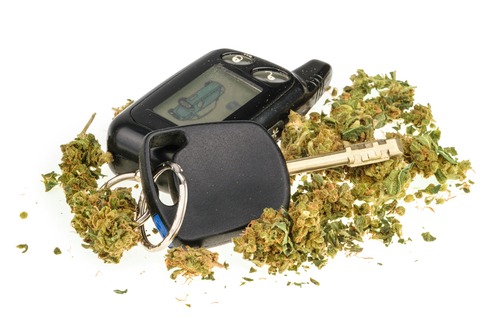This article provides comprehensive guidance on the legal rights and procedures individuals should follow when confronted with police seizures involving alcohol or marijuana. It elucidates the relevant laws and sections governing such situations, outlining the steps individuals can take to protect their rights and interests. Through an analysis of legal provisions and case law, this article aims to empower individuals with the knowledge necessary to navigate encounters with law enforcement authorities involving the seizure of alcohol or marijuana.
Introduction:
Encounters with law enforcement authorities, particularly involving the seizure of alcohol or marijuana, can be daunting and complex. It is crucial for individuals to be aware of their legal rights and obligations in such situations to ensure their interests are safeguarded. This article serves as a practical guide, offering insights into the applicable laws and procedures governing police seizures of alcohol or marijuana and the actions individuals can take to assert their rights effectively.
Relevant Laws and Sections:
- The Narcotic Drugs and Psychotropic Substances Act, 1985 (NDPS Act):
- Section 20: Prohibition of production, manufacture, possession, sale, purchase, transport, warehousing, use, consumption, import inter-state, export inter-state, import into India, export from India or transhipment of narcotic drugs and psychotropic substances.
- Section 27: Punishment for consumption of any narcotic drug or psychotropic substance.
- Section 42: Power of entry, search, seizure, and arrest without warrant or authorization.
- Section 43: Power of seizure and arrest in public places.
- Section 50: Conditions under which search of persons shall be conducted.
- The Excise Act:
- State-specific legislation governing the manufacture, sale, and consumption of alcohol.
- Provisions relating to licensing, transportation, and possession of alcoholic beverages.
Legal Rights and Procedures:
- Remain Calm and Cooperative:
- Maintain composure and avoid confrontational behaviour.
- Cooperate with police instructions while asserting your rights firmly.
- Request Identification:
- Ask the police officers for their identification and note down their names and badge numbers.
- Inquire About the Grounds for Seizure:
- Politely ask the police officers for the reasons behind the seizure of alcohol or marijuana.
- Seek clarification on the applicable legal provisions under which the seizure is being conducted.
- Exercise Right to Remain Silent:
- You have the right to remain silent and not incriminate yourself.
- Refrain from providing any statements or admissions without consulting a legal advisor.
- Request Legal Representation:
- If detained or arrested, assert your right to legal representation.
- Contact a lawyer at the earliest opportunity to seek advice and assistance.
- Seek Documentation:
- Request the police officers to provide a seizure memo detailing the items confiscated, reasons for seizure, and the identities of the officers involved.
- Ensure that the seizure memo is signed by both the police officers and yourself as acknowledgement of receipt.
- Challenge Unlawful Seizure:
- If you believe the seizure to be unlawful or unjustified, you have the right to challenge it through legal means.
- Consult a lawyer to explore options for filing a complaint or seeking redressal through the appropriate legal channels.
Case Law Analysis:
- State of Punjab v. Balbir Singh (1994):
- In this case, the Supreme Court held that searches and seizures must comply with the procedural safeguards under the law.
- The Court emphasized the importance of adherence to legal requirements to prevent arbitrary exercises of power by law enforcement authorities.
- M. Prabhakar Rao v. State of A.P. (2001):
- The Andhra Pradesh High Court ruled that seizures made without following due process are illegal and liable to be set aside.
- The Court emphasized the need for strict adherence to legal procedures to uphold individual rights and prevent abuse of authority.
Conclusion:
Encounters with law enforcement authorities involving the seizure of alcohol or marijuana can be fraught with legal complexities and uncertainties. By understanding their legal rights and following the prescribed procedures, individuals can effectively navigate such situations and protect their interests. It is imperative to remain calm, assertive, and informed while availing oneself of legal representation when necessary.
This article underscores the importance of legal awareness and preparedness in safeguarding individual rights and ensuring justice in encounters with law enforcement agencies.
Adv. Khanak Sharma


You are a very capable individual!
Sweet blog! I found it while searching on Yahoo News. Do you have any tips on how to get listed in Yahoo News? I’ve been trying for a while but I never seem to get there! Thanks
Thanks for the suggestions about credit repair on all of this blog. The thing I would advice people would be to give up this mentality that they’ll buy at this moment and fork out later. As a society we all tend to try this for many issues. This includes getaways, furniture, and items we wish. However, you need to separate one’s wants from all the needs. While you’re working to fix your credit score you have to make some trade-offs. For example it is possible to shop online to save money or you can check out second hand shops instead of high priced department stores with regard to clothing.
Speedy service with a smile!
buy lisinopril
Their health awareness campaigns are so informative.
An excellent choice for all pharmaceutical needs.
gabapentin tremor treatment
They provide a world of health solutions.
Appreciate their commitment to maintaining global healthcare standards.
cost cheap cytotec online
Their online refill system is straightforward.
Their wellness workshops have been super beneficial.
order cytotec for sale
Their global health resources are unmatched.
Always stocked with the best brands.
gabapentin accion
Helpful, friendly, and always patient.